Global Initiatives for
International and regional frameworks and standards affirm that human rights education is central to the full and equal enjoyment of all human rights. These standards encourage the development and implementation of human rights education strategies and programs at the national level.
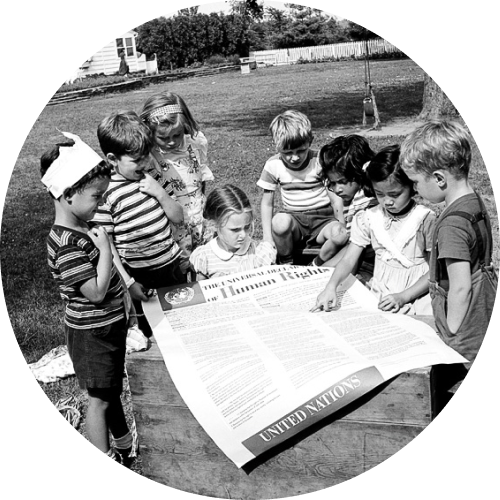
1948
Universal Declaration of Human Rights (UDHR)
The UDHR expressly tasks every individual and institution to promote respect for human rights through teaching and education. It sets out that “education shall be directed to the full development of the human personality and to the strengthening of respect for human rights and fundamental freedoms. It shall promote understanding, tolerance and friendship among all nations, racial or religious groups, and shall further the activities for the maintenance of peace.”
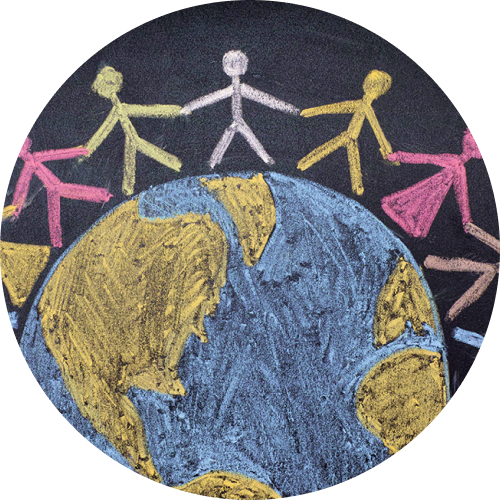
1974
UNESCO Recommendation
The UNESCO Recommendation concerning Education for International Understanding, Cooperation and Peace and Education relating to Human Rights and Fundamental Freedoms is a commitment to encourage and support governments to ensure the education of all for the advancement of justice, freedom, human rights and peace.
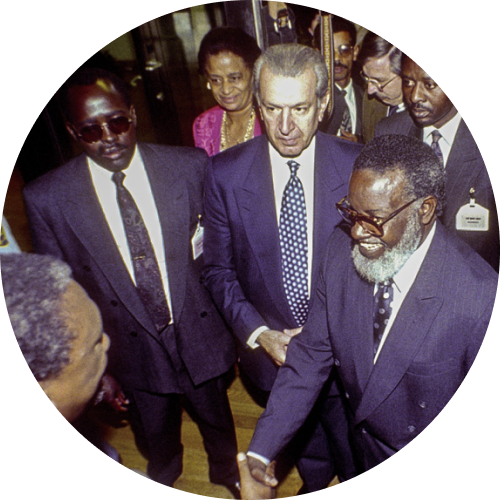
1993
World Conference on Human Rights
Representatives of 171 states at the World Conference on Human Rights in Vienna reaffirmed human rights education, training and public information as “essential for the promotion and achievement of stable and harmonious relations among communities and for fostering mutual understanding, tolerance and peace.” The conference was marked by an unprecedented degree of participation by government delegates and the international human rights community—some 7,000 participants, including academics, treaty bodies, national institutions and representatives of more than 800 NGOs gathered to review and benefit from shared experiences.

1994
UN Decade for Human Rights Education (1995–2004)
The UN General Assembly declared the UN Decade for Human Rights Education (1995–2004) and urged all countries to promote “training, dissemination and information efforts aimed at the building of a universal culture of human rights.” As a result, governments put greater effort into promoting human rights education, mainly through state education programs, and a number of plans and programs were developed and implemented by the UN.
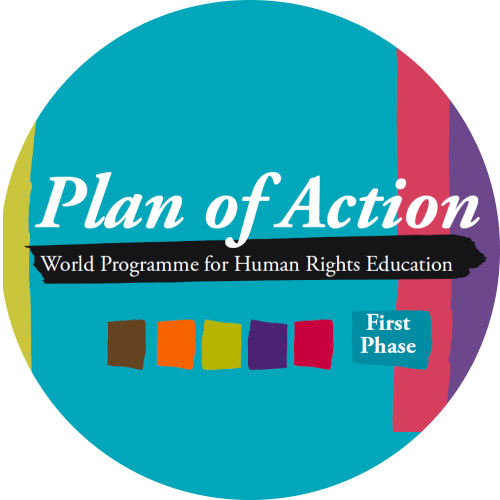
2005
World Programme for Human Rights Education
Building on the achievements of the UN Decade the ongoing World Programme for Human Rights Education provides guidance on developing and implementing human rights education policy and programs in all educational sectors. It promotes a common understanding of the basic principles and methodologies of human rights education and provides a concrete framework for action for specific sectors or issues including:
• Human rights education in primary, secondary and higher education
• Human rights training programs for teachers and educators, civil servants, law enforcement officials and military personnel
• Human rights training for media professionals and journalists

2011
UN Declaration on Human Rights Education and Training
The declaration places human rights education and training central to efforts to realize all rights for all. It emphasizes the obligations of our governments under international human rights law to provide and facilitate systematic and comprehensive programs on human rights education and training. It also highlights the role played by other national actors—such as academia, national human rights institutions and NGOs—and the need to support national efforts through international human rights mechanisms and international cooperation.
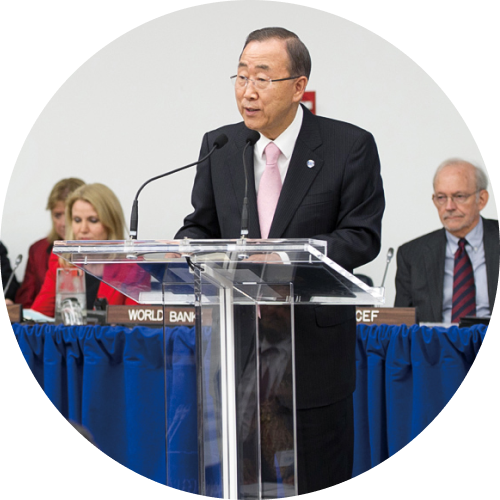
2012
UN Global Education First Initiative
The UN launched this initiative rallying a broad spectrum of world leaders and advocates to deliver on the promise of Education for All. Among the three priority areas of the initiative was the need to foster global citizenship.
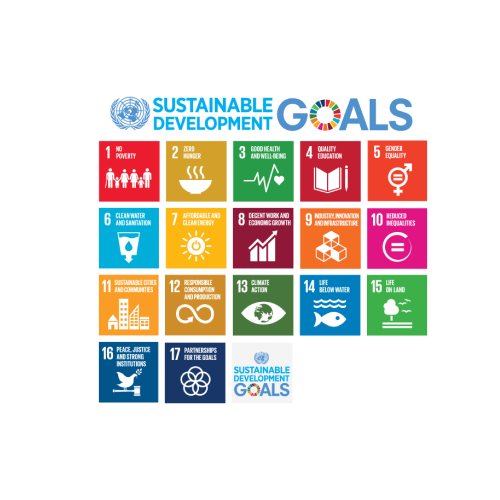
2015
UN Sustainable Development Goals
The SDGs include human rights education as a specific target of Goal 4.7, which includes quality education: “By 2030, ensure that all learners acquire the knowledge and skills needed to promote sustainable development, including, among others, through education for sustainable development and sustainable lifestyles, human rights, gender equality, promotion of a culture of peace and non-violence, global citizenship and appreciation of cultural diversity and of culture’s contribution to sustainable development.”









